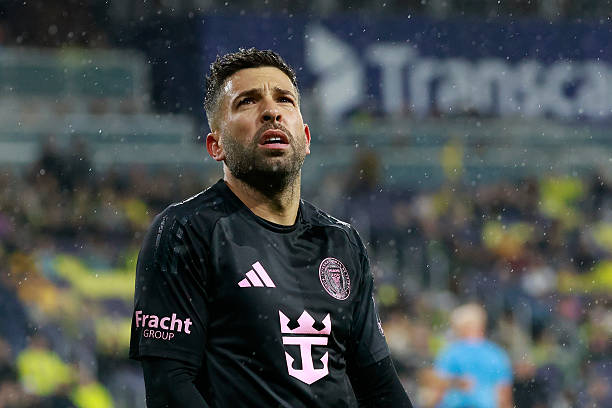Barcelona legend Jordi Alba has paid a heartfelt tribute to Unai Emery, crediting the Aston Villa manager for reshaping his football career during their time together at Valencia.
In an emotional interview with Sport, the veteran left-back — who recently announced he will retire at the end of the 2025 MLS season — reflected on how Emery’s bold tactical decision changed the entire course of his professional life.
“I didn’t want to play as a full-back,” Alba admitted. “All my life I’d played as an attacking midfielder or winger. But it was Unai Emery who decided. We talked about it many times: I didn’t want to play there. But thanks to that change, I’ve been able to earn a living and have a successful career.”
The 36-year-old, now with Inter Miami in Major League Soccer, began his career at Valencia as a young, energetic attacker. When Emery took charge of the La Liga side in 2008, he quickly saw something different in Alba — a blend of pace, work rate, and intelligence that could be harnessed in a deeper role.
“Unai always had a clear vision,” Alba explained. “He saw something in me that I didn’t see in myself. He told me that playing at full-back could take me to another level — that my speed and ability to read the game would make me special there. At first, I resisted it. I thought it wasn’t for me. But over time, I understood he was right.”
Emery’s tactical foresight proved crucial. Under his guidance, Alba developed the defensive discipline and positional awareness that would later make him one of the best left-backs in the world. By the time he joined Barcelona in 2012, Alba had mastered the attacking full-back role that became synonymous with his game — combining relentless overlapping runs with precise crossing and sharp link-up play.
At Barcelona, he formed a devastating partnership with Lionel Messi, their telepathic understanding often unlocking the tightest defences. Together, they won multiple La Liga titles, five Copa del Rey trophies, and the 2015 UEFA Champions League, with Alba’s marauding runs becoming a defining feature of the club’s attacking identity.
Looking back, Alba believes that none of it would have been possible without Emery’s early intervention.
“He changed my mentality,” Alba said. “He showed me that football isn’t just about doing what you like, but about doing what helps the team and improves you as a player. That lesson has stayed with me my whole career.”
Emery’s reputation for player development has only grown since his Valencia days. The Spanish coach has gone on to manage some of Europe’s top clubs, including Sevilla, Paris Saint-Germain, Arsenal, Villarreal, and now Aston Villa, where he has earned plaudits for turning the Premier League side into European contenders.
For Alba, Emery’s influence extended far beyond tactics. “He’s very demanding but very human,” Alba noted. “He knows how to talk to players, how to motivate you, how to make you believe in what he’s trying to do. He’s one of the most intelligent coaches I’ve ever had.”
As Alba prepares to hang up his boots after nearly two decades at the top level, he does so with gratitude for the man who saw his potential before anyone else did.
“I owe a big part of my career to Unai,” he concluded. “Without him, I might never have become the player people know today. Sometimes, one decision changes everything — and for me, that was moving to left-back.”
From a reluctant position switch at Valencia to global stardom at Barcelona, Jordi Alba’s story stands as a testament to the power of trust, vision, and a coach’s belief in his player’s hidden strengths.



